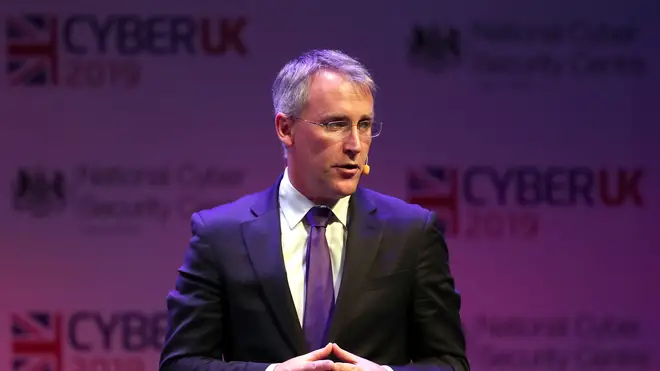
Ian Payne 4am - 7am
1 September 2020, 16:14

The centre’s departing chief executive said the rise in online scams exploiting the pandemic justified having a dedicated agency on the issue.
The rise in online scams and cyberattacks linked to coronavirus has been the “unexpected vindication” of the decision to create a standalone UK cybersecurity agency, its departing boss has said.
Ciaran Martin, who is about to leave his role as the first head of the National Cyber Security Centre (NCSC), said cybercriminals and foreign spies had been quick to exploit the Covid-19 pandemic for their gain.
During lockdown, the NCSC launched a reporting service which allowed people to forward suspicious emails directly to the agency for further investigation – it has so far received more than 1.8 million reports, which has resulted in over 16,800 malicious sites being blocked or taken down.
Mr Martin told the BBC that as well as an increase in online scams looking to exploit fears around the virus and tricking people into giving up personal information on buying goods, foreign actors targeting vaccine development had presented a new challenge.
In July, the UK, along with the US and Canada, accused Russian intelligence of targeting universities and researchers in an attempt to steal vaccine research, with the NCSC stepping in to offer more protection to those institutions involved.
“Many of the people involved never thought they’d be in a case where they’d be talking to part of an intelligence service about resisting major nation-state threats against their work,” Mr Martin said.
“We have built up significant knowledge of some of the major attack groups from the major nation-states, including Russia, over more than two decades.
“For a lot of the things that we were seeing in the high end of vaccine protection, it was detected by us because it was the more sophisticated end, where the attacker is trying harder not to get caught.”
On broader tech issues, Mr Martin said the NCSC has not seen any reason to issue any specific guidance around the use of Chinese-owned app TikTok, despite US president Donald Trump has claimed is a threat to national security.
“The amount of personal data it collects, people need to be aware of,” he said, but added “it is slightly less than some of the others”.
Mr Martin also defended the UK’s intelligence services over accusations in the Russia report which suggested they had not focused enough on threats from Russia.
He argued it was not the job of the intelligence to moderate political debate.
“No-one wants to live in a country where the likes of parts of GCHQ or MI5 are in charge of verifying political information in the midst of an election,” he said.
Mr Martin, who is moving on to a job at Oxford University, is being succeeded at the NCSC by Lindy Cameron, who joins from her role as director-general of the Northern Ireland Office, and will take over as NCSC chief executive in October.